Folks in the Hebrew Roots Movement will tell us that God, in Christ, instituted a renewal of the Old Covenant instead of giving us a completely New Covenant. They cite the Hebrew language to support their position, using something known as the ‘Root Word Fallacy’.
Following are two entries from the “Glossary M-Z” page, examining the concept of a New vs. a Renewed Covenant, followed by excellent word studies from two readers, SheepWrecked (who also has a testimony here at JGIG), and Kimberly from Maine, who have both done a great job examining the language issues surrounding whether or not the Covenant in Christ is New or Renewed.
Sheep’s and Kimberly’s examinations of the New/Renewed issue are thorough, using step by step progressions. Each one comes to their conclusion using two different methods of study. This page will also be linked to on the “Articles” page located in the Articles tab located at the top of this site.
I know that language studies can be tedious (like just shoot me now tedious, though some really like language study), but I think if you stick with the following, you’ll see how clearly God has communicated the New Covenant to us.
Special thanks to SheepWrecked at For The Love of Truth and Kimberly from Maine for the language analysis portions of the following:
New Covenant or “Renewed” Covenant?
New Covenant – This, from a post here at JGIG, “Law Keepers – Part 4 – Thoughts on the New Covenant” :
At the Last Supper Jesus held up the bread and the wine and said,
“This is my Body and my blood, do this in remembrance of me.” (Luke 22:14-20)
Jesus says in Luke 22:20,
“This cup is the new covenant in my blood, which is poured out for you.”
 Jesus wants us to remember that His Flesh and Blood took the place of the old covenant (Law) to make us acceptable (free from sin – from spiritual death to spiritual life) before God.
Jesus wants us to remember that His Flesh and Blood took the place of the old covenant (Law) to make us acceptable (free from sin – from spiritual death to spiritual life) before God.
It seems to be a rather significant point made during the observance of a feast itself. He shifted the focus in a very clear way from remembering what the Passover was all about to remembering what the breaking of HIS Body and the shedding of HIS Blood was all about . . . replacing the blood on the doorposts (a TEMPORARY solution) with His own Blood (the PERMANENT solution).
To say that that is not enough, or to say that one does not realize the full meaning of all God has done UNLESS one observes the Torah, or that one is not pleasing to or loving God enough if one is not observing the Torah is to say that the shed Blood of Christ is really not enough. That is ground I would not care to tread upon. And make no mistake, that is where you are treading if you feel we all should be Torah observant.
It is not Jesus plus anything that pleases God. God in the flesh – Jesus – fully God and fully man, was crucified and shed His blood for our sins, rose from the dead three days later, and ascended into heaven and sits at the right hand of the Father. He finished the complete work of salvation. God does not require that we follow Torah. He nailed the written code to the cross. (Colossians 2:13-15) He released us from the Law when He released us from our sin through the Blood of Christ. (Romans 7:4-6)
“Therefore, there is now no condemnation for those who are in Christ Jesus, because through Christ Jesus the law of the Spirit of life set me free from the law of sin and death. For what the law was powerless to do in that it was weakened by the sinful nature, God did by sending his own Son in the likeness of sinful man to be a sin offering. And so he condemned sin in sinful man, in order that the righteous requirements of the law might be fully met in us, who do not live according to the sinful nature but according to the Spirit.” (Romans 8:1-4)
The indwelling of the Holy Spirit in a repentant believer, cleansed by the blood of THE Lamb, results in the changing of a person – from the inside out! The Law works itself from the outside in. And it’s never enough. Jesus talks a LOT about that in Matthew 23.
Can one truly be “Torah observant” when, in reality, one is selective in which parts of the Law one obeys? Are there not parts of the Law that require a High Priest and a Temple? What about animal sacrifice? Did God become flesh and spill His blood simply to spare us the inconvenience of sacrificing animals?
What about penalties for those who violate the parts of the law for which the punishment is death? Who will take on the “responsibility” of making sure that appropriate punishment is administered according to the Law? Do not Deuteronomy 27:26 and Galatians 3:10 say that “cursed is everyone who does not continue to do EVERYTHING written in the Book of the Law?” (Caps mine.)
How is it, in the view of Law keepers, that Grace exempts one from observing/performing the parts of the Law that one finds inconvenient or impractical, but does not exempt one from observing/performing the more palatable parts of the Law?
Honestly, my intent is not to be antagonistic here. I really wonder how those who are “Torah observant” can reconcile these obvious problems with consistency in obedience to the Law. If you do go ahead and decide to perform sacrifices, to be consistent, then of what use is the Cross? Have you not left the Cross, rejected the redemptive work of the Blood that was shed there for you by the Lamb of God?
“When you were dead in your sins and in the uncircumcisionof your sinful nature, God made you alive with Christ. He forgave us all our sins, having canceled the written code, with its regulations, that was against us and that stood opposed to us; He took it away, nailing it to the cross. And having disarmed the powers and authorities, he made a public spectacle of them, triumphing over them by the cross. Therefore do not let anyone judge you by what you eat or drink, or with regard to a religious festival, a New Moon celebration or a Sabbath day. These are a shadow of the things that were to come; the reality, however, is found in Christ.” (Colossians 2:13-17)
I wonder . . . . . how does God view Law-keeping through the lenses of His Grace and His Blood?
Beyond the realities of what the New Covenant means to the individual believer, how the believer carries out the commands of Christ – the “Law of Christ” impacts those around that believer in a complete systemic all-inclusive way. Christ’s commands? Love God, love others.
How do the realities of the New Covenant enable us to do that?
Under the New Covenant, the Law of Christ, the believer is now free to love their neighbor without restriction. We are able to bend down into the dirt of life and minister to those in need and love them with the love that comes from the very Holy Spirit of God. We don’t need to worry if something or someone will make us “unclean” as we love and minister to those arouned us.
Why? Because we are cleansed with the Blood of Christ, not merely covered by the blood of animals. Our state of redemption and “clean-ness” is permanent and irrevocable – incorruptible – based on the Righteousness of Christ, which, as He lives His Life in and through us, produces the Fruit of the Spirit, Love, which fulfills the commandment to love one another, which in turn fulfills the Law. In Christ, we are able to Love God, Love others, whatever the circumstance.
That is the beauty, the reality, of the New Covenant!
~~~~~~~~~~~~~~~~~~~~~~~~~~~~~~~~~~~~~
“Renewed” Covenant – One false definition of the New Covenant re-termed the “Renewed Covenant” typical in the Hebrew Roots Movement is found at 1bread.org:
“At His last Passover, Yahshua initiated a “New Covenant” (prophesied in Jeremiah 31:31). In Hebrew, it is really a  renewal of the same covenant, with a few allowances added for while we make the transition back. [???] But the Covenant is “with the House of Israel and the House of Judah”. It cannot be fully in effect until Israel is back together, for it is not with individuals but with a unified nation. So our focus needs to shift from just being saved individuals to again being the people of Israel. Don’t pass up this highest of callings! We dare not fail again.”
renewal of the same covenant, with a few allowances added for while we make the transition back. [???] But the Covenant is “with the House of Israel and the House of Judah”. It cannot be fully in effect until Israel is back together, for it is not with individuals but with a unified nation. So our focus needs to shift from just being saved individuals to again being the people of Israel. Don’t pass up this highest of callings! We dare not fail again.”
“We dare not fail again”??? Who’s running the show in the Hebrew Roots Movement? Man or God?
No Scriptures come to mind to support the above rendering of a “renewed Covenant”. In more mainstream Hebrew Roots circles the concept of a “renewed Covenant” vs. the “New Covenant” is rendered with the mis-use of the original languages of Scripture.
~~~~~~~~~~~~~~~~~~~~~~~~~~~~~~~~
Here’s a language analysis from SheepWrecked at “For the Love of Truth”, which examines whether God has given us a New or a Renewed Covenant in Christ. Used with permission, and be sure to check out Kimberly from Maine’s take with a different style and emphasis after SheepWrecked’s article – both are well worth the time.
Is it the New or Renewed Covenant?
By SheepWrecked
Some Hebrew roots “scholars” are teaching that we are under a renewed covenant, not new, therefore we must follow the Old Covenant laws as well. Some have gone so far as to teach that the New Covenant will not be in effect until the return of Jesus.
B’riyt Chadashah is the phrase that appears in Jeremiah 31:
Behold, the days come, says the LORD, that I will cut a new covenant with the house of Israel and with the house of Judah, not according to the covenant that I cut with their fathers in the day I took them by the hand to bring them out of the land of Egypt (which covenant of Mine they broke, although I was a husband to them, says the LORD). (Jeremiah 31:31-32)
B’riyt means covenant, which is the equivalent for the word testament. Chadash in the context of Jeremiah 31:31 does not mean renewed but new, and in this passage the adjectival form for renewedwould have to appear as mechudeshet to make it mean renewed, and not chadashah as found in the Hebrew text. We can determine that the meaning is something completely new because following verse 31, the negative “lo” appears in the Hebrew text (lo kabriyt). Contextually, this makes it clear that the writer is differentiating between an existing and a “new” covenant. The new covenant referred to in verse 31 is referred to in the Hebrew of verse 32 as lo meaning “not” the previous covenant and is defined in the passage below as not being:
“. . . the covenant that I made with their fathers in the day that I took them by the hand to bring them out of the land of Egypt; my covenant which they broke . . . “
There are two separate and distinct forms of chadash listed in the Hebrew lexicon for new (H2319) and renewed (H2318). Another Biblical Hebrew form for renewed is mechudash, the pu`al particple from the root (shoresh) chet-dalet-shin. Chidesh is a modern Hebrew word that is also used for renewed.
H2319
חדשׁ
châdâsh
BDB Definition:
1) new, new thing, fresh
Part of Speech: adjective
A Related Word by BDB/Strong’s Number: from H2318
Same Word by TWOT Number: 613a
Here is the Hebrew lexicon listing of the word that is translated as renewed:
H2318
חדש
châdash
BDB Definition:
1) to be new, renew, repair
1a) (Piel)
1a1) to renew, make anew
1a2) to repair
1b) (Hithpael) to renew oneself
Part of Speech: verb
A Related Word by BDB/Strong’s Number: a primitive root
Same Word by TWOT Number: 613

Let’s take a look at how the Jewish scholars that made up the translation team for the 1917 Jewish Publication Society TeNaKh translated chadash (H2319) contextually:
30 Behold, the days come, saith the LORD, that I will make a new covenant (b’riyt chadashah) with the house of Israel, and with the house of Judah;
Here is the Hebrew:
הִנֵּה יָמִים בָּאִים, נְאֻם-יְהוָה; וְכָרַתִּי, אֶת-בֵּית יִשְׂרָאֵל וְאֶת-בֵּית יְהוּדָה–בְּרִית חֲדָשָׁה.
Just to be sure, I referenced the latest version of the JPS TeNaKh (1985). It says new there as well. As a matter of fact, it says new in every translation I reviewed, with the exception of a few Hebrew Roots translations which are filled with faulty language scholarship, and are purely agenda driven.
So using the Hebrew roots teacher’s logic, shouldn’t this passage below also be renewed then?
Do not remember former things, nor consider the things of old. Behold, I will do a new 2319 (chadashah) thing; now it shall sprout. Shall you not know it? I will even make a way in the wilderness, rivers in the desert.(Isaiah 43:18-19)
Using the same reasoning, wouldn’t it be a renewed song in the following passages as well?
Sing to Him a new (H2319) song; play skillfully, with shouts of joy. (Psalms 33:3)
And He put a new (H2319) song of praise to our God in my mouth; many shall see and shall fear and shall trust in the LORD. (Psalms 40:3)
O sing to the LORD a new (H2319) song; sing to the LORD, all the earth. (Psalms 96:1)
O sing to the LORD a new (H2319) song, for He has done wondrous things; His right hand and His holy arm has saved Him. (Psalms 98:1)
I will sing a new (H2319) song to You, O God; I will sing praises to You on a harp of ten strings (Psalms 144:9)
Praise the LORD! Sing to the LORD a new (H2319) song, His praise in the assembly of the saints. (Psalms 149:1)
Sing a new (H2319) song to the LORD; His praise from the end of the earth, you who go to sea, and all that is in it; the coasts and their people. (Isaiah 42:10)
How did Hebrew Scribes translate the word “new” when they put together the Greek traslation (the Septuagint) of the Old Testament?
Below are some of the words that the Hebrew scribes used when translating the Hebrew word chadashinto a Greek equivalent for the Septuagint (LXX) and their definitions:
H2319
chadash G2537 kainos
chadash G3501 neos
G2537
καινοìς
kainos
Thayer Definition:
1) new
1a) as respects form
1a1) recently made, fresh, recent, unused, unworn
1b) as respects substance
1b1) of a new kind, unprecedented, novel, uncommon, unheard of
Part of Speech: adjective
A Related Word by Thayer’s/Strong’s Number: of uncertain affinity
Citing in TDNT: 3:447, 388
Now from the New Testament writings we have these passages using the Greek equivalent for chadash listed above, which is kainos (G2537):
Rev 5:9 And2532 they sung103 [5719] a new 2537 song 5603, saying3004 [5723], Thou art1488 [5748] worthy514 to take2983 [5629] the book975, and2532 to open455 [5658] the seals4973 thereof846: for3754 thou wast slain4969 [5648], and2532 hast redeemed59 [5656] us2248 to God2316 by1722 thy4675 blood129 out of1537 every3956 kindred5443, and2532 tongue1100, and2532 people2992, and2532 nation1484;
Rev 14:3 And2532 they sung103 [5719] as it were5613 a new 2537 song 5603 before1799 the throne2362, and2532 before1799 the four5064 beasts2226, and2532 the elders4245: and2532 no man3762 could1410 [5711] learn3129 [5629] that new 5603 but1508 the hundred1540 and forty5062 and four5064 thousand5505, which3588 were redeemed59 [5772] from575 the earth1093.
Mat 26:28 For1063 this5124 is2076 [5748] my3450 blood129 of the new 2537 testament1242, which3588 is shed1632 [5746] for4012 many4183 for1519 the remission859 of sins266.
Heb 8:8 For1063 finding fault3201 [5740] with them846, he saith3004 [5719], Behold2400 [5628], the days2250 come2064 [5736], saith3004 [5719] the Lord2962, when2532 I will make4931 [5692] a new2537 covenant1242 with1909 the house3624 of Israel2474 and2532 with1909 the house3624 of Judah2455
Heb 8:13 In1722 that he saith3004 [5721], A new2537 covenant , he hath made3822 the first4413 old3822 [5758]. Now1161 that which decayeth3822 [5746] and2532 waxeth old1095 [5723] is ready1451 to vanish away854.
And the now another equivalent word for chadash(neos G3501) is used (see definition below):
Heb 12:24 And2532 to Jesus2424 the mediator3316 of the new 3501 covenant1242, and2532 to the blood129 of sprinkling4473, that speaketh2980 [5723] better things2909 than3844 that of Abel6.
G3501
νεìος / νεωìτερος
neos / neōteros
Thayer Definition:
1) recently born, young, youthful
2) new
Part of Speech: adjective
A Related Word by Thayer’s/Strong’s Number: a primary word
Citing in TDNT: 4:896, 628
Someone in the Hebrew Roots Movement may give this example while trying to convince you of the “renewed” concept:
“So what happens to the ‘Chodesh’ moon? Does it just go poof when its cycle is done? [Editor’s note: A Hebrew Roots adherent recently put it this way to me: “Keep in mind Jer. 31:31 talks of the new covenant as the ‘old’ one being written on our hearts. Also keep in mind that the Hebraic understanding of “new” is more like, ‘renewed’. Just as the New moon is seen every month and is certainly not a different, one, so too the Covenant is not a different one, but a renewed one.”]
Actually, chodesh is listed as a totally different word in the Hebrew lexicon, that has its derivation from a word that is listed as meaning renewed.
H2320
חדש
chôdesh
BDB Definition:
1) the new moon, month, monthly
1a) the first day of the month
1b) the lunar month
Part of Speech: noun masculine
A Related Word by BDB/Strong’s Number: from *H2318*
Same Word by TWOT Number: 613b
The Bad News and the Good News
I once read that a Jewish person living in Israel on a good day could only fulfill about 240 of the 613 commandments established by the rabbis. That is because there is no Temple, no Priesthood, and other various reasons. If you do the math on that, it means that a person living in the US could probably only fulfill 40 +/- percent of the Law on a good day.
Here is the bad news:
If you truly fulfill the royal Law according to the Scripture, “You shall love your neighbor as yourself,” you do well. But if you have partiality you work sin, being reproved by the Law as transgressors. For whoever shall keep all the Law, but stumbles in one, he has become guilty of all. (James 2:8-10)
To believe that you are keeping the Law (which one is not capable of) and then switching to grace when someone points that out, is a terrible witness for the price that Christ paid (in my personal opinion). This is where the whole Hebrew roots concept of a “renewed covenant” got its start. What do the scriptures say, and what is truly your final authority? Let’s look to the book of Hebrews just to be sure:
Truly, then, if perfection was through the Levitical priestly office (for the people had been given Law under it), why yet was there need for another priest to arise according to the order of Melchizedek and not to be called according to the order of Aaron? For the priestly office having been changed, of necessity a change of law also occurs.
For, indeed, an annulment of thepreceding command comes about because of its weakness and unprofitableness. For the Law perfected nothing, but a bringing in of a better hope, through which we draw near to God. And by how much it was not without oath-taking; for they truly becoming priests are without oath-taking, but He with oath-taking, through the One saying to Him, The Lord swore, and will not care to change, “You are a priest to the age according to the order of Melchizedek;” by so much Jesus has become Surety of a better covenant. (Hebrews 7:11-12,18-22)
For anyone to teach that the New Covenant is not here yet goes against scripture, and is agenda driven. Those who teach this are alluding to the fact that we are still under the Old Covenant until Christ returns. Since the book of Hebrews shows that to be incorrect, many of the Hebrew roots teachers are now saying that the book of Hebrews is not authentic, and should be removed from the canon.
And now for the Good News (The Gospel!)
According to the Book that I read, the Law is now written in our hearts.
But now He has gotten a more excellent ministry, also by so much as He is a Mediator of a better covenant, which has been enacted on better promises:
For if that first was faultless, place would not have been sought for a second. For finding fault, He said to them, “Behold, days are coming, says the Lord, and I will make an end on the house of Israel and on the house of Judah; a new covenant shall be, not according to the covenant which I made with their fathers in the day of My taking hold of their hand to lead them out of the land of Egypt; because they did not continue in My covenant, and I did not regard them”, says the Lord. “Because this is the covenant which I will covenant with the house of Israel after those days”, says the Lord, “giving My Laws into their mind, and I will write them on their hearts,and I will be their God, and they shall be My people. And they shall no more teach each one their neighbor, and each one his brother, saying, ‘Know the Lord’; because all shall know Me, from the least of them to their great ones. For I will be merciful to their unrighteousnesses, and I will not at all remember their sins and their lawless deeds.” In the saying, New, He has made the first old. And the thing being made old and growing aged is near disappearing. (Hebrews 8:6-13)
A covenant cannot be changed after the death of the testator:
And for this cause He is the Mediator of the new testament, that by means of death, for the redemption of the transgressions that were covered under the first testament, those who are called might receive the promise of eternal inheritance. For where a testament is, there must also of necessity be the death of the testator. For a testament is of force after men are dead, otherwise it is of no strength at all while the testator is living. And so not even the first testament was dedicated without blood. (Hebrews 9:15-18)
Brothers, I speak according to man, a covenant having been ratified, even among mankind, no one sets aside or adds to it. (Galatians 3:15)
~~~~~~~~~~~~~~~~~~~~~~~~~~~~~~~~~~~~~~
Kimberly from Maine Says:
After reading several statements claiming that because the New Moon is not actually new therefore the New Covenant is not either, but “REnewed”, I decided to do a word study on “new” and “renew.” I found the study quite enlightening and thought I’d share my results with you.
According to Strong’s Concordance, there are seven different Hebrew words translated “new.”
The first is 1069 bakar baw-kar’ a primitive root; properly, to burst the womb, i.e. (causatively) bear or make early fruit (of woman or tree); also (as denominative from 1061) to give the birthright:–make firstborn, be firstling, bring forth first child (new fruit). It is translated “new” in the following verse:
“And by the river upon the bank thereof, on this side and on that side, shall grow all trees for meat, whose leaf shall not fade, neither shall the fruit thereof be consumed: it shall bring forth NEW fruit according to his months, because their waters they issued out of the sanctuary: and the fruit thereof shall be for meat, and the leaf thereof for medicine.” Eze 47:12
The second instance is 1278 briy’ah ber-ee-aw’ feminine from 1254; a creation, i.e. a novelty:–new thing. It is found in this verse:
“But if the LORD make a NEW thing, and the earth open her mouth, and swallow them up, with all that appertain unto them, and they go down quick into the pit; then ye shall understand that these men have provoked the LORD.” Nu 16:30
The third instance is 2323 chadath khad-ath’ (Aramaic) corresponding to 2319; new:–new and is found in this verse:
“4With three rows of great stones, and a row of new timber: and let the expenses be given out of the king’s house: 5And also let the golden and silver vessels of the house of God, which Nebuchadnezzar took forth out of the temple which is at Jerusalem, and brought unto Babylon, be restored, and brought again unto the temple which is at Jerusalem, every one to his place, and place them in the house of God.” Ezr 6:4-5
The fourth instance is 2961 tariy taw-ree’ from an unused root apparently meaning to be moist; properly, dripping; hence, fresh (i.e. recently made such):–new, putrefying. This word is used in the verse
“15And he found a NEW jawbone of an ass, and put forth his hand, and took it, and slew a thousand men therewith.”Judges 15:15
In each of these instances, the words I have given were used just a single time, in the verses given.
Then I made an interesting discovery. The next word is 8492 tiyrowsh tee-roshe’ or tiyrosh {tee-roshe’}; from 3423 in the sense of expulsion; must or fresh grape-juice (as just squeezed out); by implication (rarely) fermented wine:–(new, sweet) wine. This word is translated “new wine” in 13 verses. In other words, if you look up “new” in the verse Proverbs 3:10 and then “wine” in that same verse, you are given the number 8492 for the word “new” and again for the word “wine.” In other words, “new” is not one Hebrew word and then “wine” another. “Tiyrowsh” means “new wine.” Here are some verses so that you may look for yourself:
“39For the children of Israel and the children of Levi shall bring the offering of the corn, of the NEW WINE, and the oil, unto the chambers, where are the vessels of the sanctuary, and the priests that minister, and the porters, and the singers: and we will not forsake the house of our God.” Ne 10:39
“10So shall thy barns be filled with plenty, and thy presses shall burst out with NEW WINE.” Pr 3:10
“11Whoredom and wine and NEW WINE take away the heart.” Ho 4:11
With this discovery fresh in mind, I approached the next word 2320 chodesh kho’-desh from 2318; the new moon; by implication, a month:–month(-ly), new moon. Again, I found that there is not one Hebrew word for “new” and another for “moon,” but a single Hebrew word translated “new moon” in 24 verses. I have given four verses as examples so that you may look for yourself.
“5And David said unto Jonathan, Behold, to morrow is the NEW MOON, and I should not fail to sit with the king at meat: but let me go, that I may hide myself in the field unto the third day at even.” 1 Sam 20:5
“23And he said, Wherefore wilt thou go to him to day? it is neither NEW MOON, nor sabbath. And she said, It shall be well.” 2 Ki 4:23
“3Blow up the trumpet in the NEW MOON, in the time appointed, on our solemn feast day.” Ps 81:3
“23And it shall come to pass, that from one NEW MOON to another, and from one sabbath to another, shall all flesh come to worship before me, saith the LORD.” Isa 66:23
But there’s more! While the word chodesh is translated “new moon” in 24 instances, in another 217 it is simply translated “month.”
“4And the ark rested in the seventh MONTH, on the seventeenth day of the month, upon the mountains of Ararat.” Gen 8:4
“19And the people came up out of Jordan on the tenth day of the first MONTH, and encamped in Gilgal, in the east border of Jericho.” Jos 4:19
At this point, I find it simply illogical that one can conclude that because “chodesh” means “new moon” and “month” that therefore the “new” of “New covenant” in Jer 31:31 means “renew.” But we will continue the study…
The final word translated “new” in the Old Testament is 2319 chadash khaw-dawsh’ from 2318; new:–fresh, new thing. There are 45 instances of this word, one of them the Jeremiah verse in question:
“31Behold, the days come, saith the LORD, that I will make a NEW covenant with the house of Israel, and with the house of Judah:” Jer 31:31
It would indeed change our understanding of this important promise if we understand “new” to mean “renew.” But are we being honest with the other uses of this word if we take it to mean renew?
“8Now there arose up a NEW king over Egypt, which knew not Joseph.” Ex 1:8
“11And he said unto her, If they bind me fast with NEW ropes that never were occupied, then shall I be weak, and be as another man.” Judg 16:11
“3Sing unto him a NEW song; play skilfully with a loud noise.” Ps 33:3
“19Behold, I will do a NEW thing; now it shall spring forth; shall ye not know it? I will even make a way in the wilderness, and rivers in the desert.” Isa 43:19
Clearly, the word “new” that is used in Jer 31:31 must be understood to mean “fresh, new thing” if the other instances of that same word are to make any sense at all.
But to be fair, let’s consider the word “renew.”
“Renew” is translated 10 times from just two Hebrew words. Three times it is translated from 2498 chalaph khaw-laf’ a primitive root; properly, to slide by, i.e. (by implication) to hasten away, pass on, spring up, pierce or change:–abolish, alter, change, cut off, go on forward, grow up, be over, pass (away, on, through), renew, sprout, strike through in these verses:
“31But they that wait upon the LORD shall RENEW their strength; they shall mount up with wings as eagles; they shall run, and not be weary; and they shall walk, and not faint.” Isa 40:31
“1Keep silence before me, O islands; and let the people RENEW their strength: let them come near; then let them speak: let us come near together to judgment.” Isa 41:1
“20My glory was fresh in me, and my bow was RENEWED in my hand.” Job 29:20
The other seven times, “renew” was translated from 2318 chadash khaw-dash’ a primitive root; to be new; causatively, to rebuild:–renew, repair.
“14Then said Samuel to the people, Come, and let us go to Gilgal, and RENEW the kingdom there.” 1 Sam 11:14
“10Create in me a clean heart, O God; and RENEW a right spirit within me.” Ps 51:10
“21Turn thou us unto thee, O LORD, and we shall be turned; RENEW our days as of old.” La 5:21
“8And when Asa heard these words, and the prophecy of Oded the prophet, he took courage, and put away the abominable idols out of all the land of Judah and Benjamin, and out of the cities which he had taken from mount Ephraim, and RENEWED the altar of the LORD, that was before the porch of the LORD.” 2 Ch 15:8
“5Who satisfieth thy mouth with good things; so that thy youth is RENEWED like the eagle’s.” Ps 103:5
“17Thou RENEWEST thy witnesses against me, and increasest thine indignation upon me; changes and war are against me.” Job 10:17
“30Thou sendest forth thy spirit, they are created: and thou RENEWEST the face of the earth” Ps 104:30
Since I have engaged in this study, I stand convinced that the “new” in Jer 31:31 does indeed mean “fresh, new thing” rather than “renew.”
~~~~~~~~~~~~~~~~~~~~~~~~~~~~~
Many thanks to SheepWrecked and Kimberly from Maine for their thorough examinations of the ‘New/Renewed’ language issues!
Folks, don’t let those in the Hebrew Roots Movement try to convince you that the Bible’s original language says that we are to go back to the Law. As you can see from the above, God’s plan of redemption through the life, death, resurrection and ascension of Christ Jesus ushered in not a “renewed” covenant, but the New Covenant – we are no longer under the Law of Moses, but now under the Law of Christ, which is actually about Fruit rather than about Law.
The New Covenant is so vastly superior; a better covenant built upon better promises, with a Perfect Sacrifice and a Perfect, Forever High Priest! Don’t settle for or strive to live under the Old Covenant, or even try to mix the two.
Check out these free audio teachings regarding the New Covenant and the New Life we have in Christ (Highly Recommended):
Three other good audio teachings which round out much of the contextual, Scriptural basis for the Truths of the New Covenant can be heard here:
The first two teachings are from an Evangelical stream of faith, while the next three are from more of a Charismatic stream of faith, but all are very sound theologically.
Another good resource for New Covenant articles in print form can be found at Escape to Reality. Highly Recommended.
These teachings and more New Covenant teachings can be found on the Media Page here at JGIG. Lots of good resources there – check it out!
~~~~~~~~~~~~~~~~~~~~~~~~~~~~~~
Other articles of interest:
~~~~~~~~~~~~~~~~~~~~~~~~~~~~~~~~~~~~~~~
If you or someone you know is in the HRM or a related Law-keeping sect and are questioning what you believe, a clear presentation of the Gospel can be found HERE. For more resources regarding the Hebrew Roots/Messianic movements see the Post Index and the Articles Page. General study helps, discernment, and apologetics sites can be found HERE. Good, foundational studies with a special emphasis on Old Covenant/New Covenant Truths can be found HERE. Be sure to check out the Testimonies Page, as well. Make use of the tabs with drop-down menus found at the top of this site – there’s tons of info there, and it’s very navigable. May God guide and bless you as you seek His Truth.
~~~~~~~~~~~~~~~~~~~~~~~~~~~~~~~~~~~~~~~
Filed under: "Law Keepers", Articles, Belief Sytems, Discernment, Hebraic Roots, Hebrew Roots Movement, Law of Moses vs. Law of Christ, Religion, Teachable/Unteachable, Torah, Uncategorized | Tagged: "Law Keepers", Articles, Christianity, Discernment, Hebraic Roots, Hebrew Roots Movement, Law of Christ/Law of Moses, New Covenant, Religion, Torah | 92 Comments »











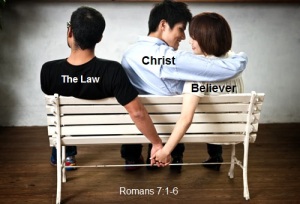
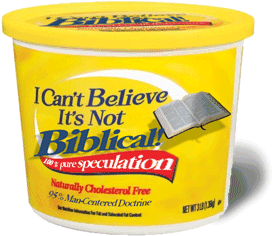






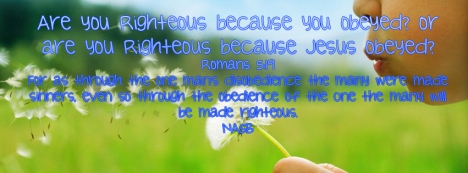



 , you would have to agree, that yes indeed, the earth has not disappeared. Well that settles it then! The Law is for believers today! And to be called great in the kingdom of heaven, you must teach these commands to others.
, you would have to agree, that yes indeed, the earth has not disappeared. Well that settles it then! The Law is for believers today! And to be called great in the kingdom of heaven, you must teach these commands to others.  ??
??
 Yeshua/Jesus as the Messiah. Jews who are believers in Jesus/Yeshua typically call themselves Jewish Christians or simply, Christians.
Yeshua/Jesus as the Messiah. Jews who are believers in Jesus/Yeshua typically call themselves Jewish Christians or simply, Christians.  From Wikipedia
From Wikipedia me.”
me.” its present dominion. Blessed freedom! The law gave sin power over the sinner; grace gives him power over it. The law revealed to the sinner his weakness; grace makes him acquainted with the strength of Christ, the law put the sinner under the curse, no matter who or what he was; grace introduces him into all the ineffable blessedness of the Father’s house — the Father’s bosom. The law elicited only the cry, “O, wretched man that I am!” grace enables him to sing triumphantly, “Thanks be to God who giveth us the victory. “These are important differences, and such as may well lead us into deep thankfulness for the truth that “we are not under the law, but under grace.”
its present dominion. Blessed freedom! The law gave sin power over the sinner; grace gives him power over it. The law revealed to the sinner his weakness; grace makes him acquainted with the strength of Christ, the law put the sinner under the curse, no matter who or what he was; grace introduces him into all the ineffable blessedness of the Father’s house — the Father’s bosom. The law elicited only the cry, “O, wretched man that I am!” grace enables him to sing triumphantly, “Thanks be to God who giveth us the victory. “These are important differences, and such as may well lead us into deep thankfulness for the truth that “we are not under the law, but under grace.” same covenant, with a few allowances added for while we make the transition back.
same covenant, with a few allowances added for while we make the transition back.  definition of the word ‘repent’ or ‘repentance’. They skew the meaning of repent in order to point the unwary believer back to the Law of Moses and away from the Law of Christ. If one forgets the transformative power and role of the Holy Spirit, along with the realities of the New Covenant, and fail to take an honest look at the language, one might be deceived and find themselves feeling ‘commanded’ into wearing tzit tzit and and attempting to keep the regulations and edicts of a covenant no longer in effect.
definition of the word ‘repent’ or ‘repentance’. They skew the meaning of repent in order to point the unwary believer back to the Law of Moses and away from the Law of Christ. If one forgets the transformative power and role of the Holy Spirit, along with the realities of the New Covenant, and fail to take an honest look at the language, one might be deceived and find themselves feeling ‘commanded’ into wearing tzit tzit and and attempting to keep the regulations and edicts of a covenant no longer in effect. 


 Something that I didn’t realize is just how much material makes up the Talmud. And all that is made up of discussions amongst those who rejected Jesus Christ as Messiah as well as by those who engaged in Jewish mysticism. I’m curious as to why anyone who claims Christ would go to the Talmud for direction in their faith.
Something that I didn’t realize is just how much material makes up the Talmud. And all that is made up of discussions amongst those who rejected Jesus Christ as Messiah as well as by those who engaged in Jewish mysticism. I’m curious as to why anyone who claims Christ would go to the Talmud for direction in their faith. 


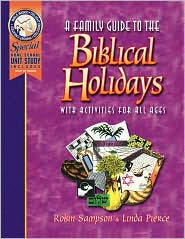
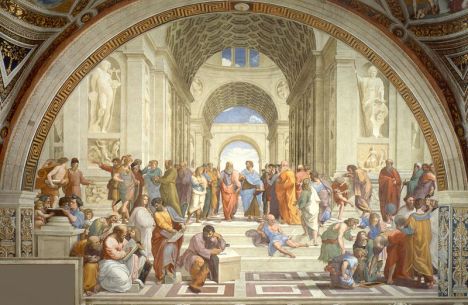 significant minimizing of the Gospel and an inappropriate elevation of the Torah and “being a part of” Israel. The simplicity of the Gospel for all tongues, tribes, and nations fades and eventually disappears under the weight of the Laws and traditions required by the “Hebraic mindset.”
significant minimizing of the Gospel and an inappropriate elevation of the Torah and “being a part of” Israel. The simplicity of the Gospel for all tongues, tribes, and nations fades and eventually disappears under the weight of the Laws and traditions required by the “Hebraic mindset.” rubble to look back on if you question them again.
rubble to look back on if you question them again. 










